Projects:RegistrationLibrary:RegLib C06b
From NAMIC Wiki
Home < Projects:RegistrationLibrary:RegLib C06b
v3.6.1
Back to ARRA main page
Back to Registration main page
Back to Registration Use-case Inventory
Contents
v3.6.1 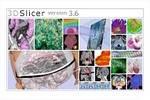 Registration Library Case #6B: RSNA 2011 DEMO Breast MRI Treatment Assessment
Registration Library Case #6B: RSNA 2011 DEMO Breast MRI Treatment Assessment
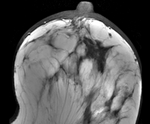
|
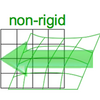
|
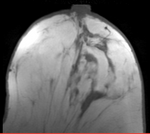
|
| fixed image/target pre Rx MRI |
moving image post Rx MRI |
Modules
- Slicer 3.6.1 recommended modules:
Objective / Background
We seek to align the post-treatment (PostRx) scan with the pre-treatment scan to compare local effects (left side only).
Keywords
MRI, breast cancer, intra-subject, treatment assessment, change detection, non-rigid registration
Download
- Data:
- Presets
Input Data
- reference/fixed : 0.44 x 0.44 x 5 mm , 784 x 784 x 30
- moving: 0.68 x 0.68 x 1.5 mm, 515 x 515 x 93
Methods
- Phase 1: affine alignment
- Go to the BRAINSfit module
- select Presets "Xf1_Affine" or set the parameters as given below:
- fixed image: "PreRx_left", moving image: "PostRx_left"
- Initialize with previous transform: select "Off"
- Initialize Transform Mode: check box for use MomentsAlign
- Registration Phases: check boxes for Include Rigid ..." and Include Affine registration phase
- Output: under Slicer Linear Transform, select new and rename to "Xf1_Affine" or similar
- Registration Parameters: this first phase is for initial alignment, we optimize/push for speed
- reduce "Number of Iterations" to 200
- reduce "Number of Samples" to 20,000
- leave rest at defaults
- Click Apply. Execution time ~ 4 seconds
- Phase 2: BSpline alignment
- Go to the BRAINSfit module
- select Presets "Xf2_BSpline1" or set the parameters as given below:
- fixed image: "PreRx_left", moving image: "PostRx_left"
- Initialize with previous transform: select "Xf1_Affine" from phase 1 above
- Initialize Transform Mode: check box for Off
- only check box for Include BSpline registration phase" , all other boxes off.
- Registration Parameters: set "Number of Samples" to 200,000 at least
- Output:
- Slicer BSpline Transform, select new and rename to "Xf2_BSpline" or similar
- Output Image Volume: select new and rename to "PostRx_left_Xf2" or similar
- Output Image Pixel Type: check box for "ushort"
- Registration Parameters:
- set "Number of Samples" to 100,000
- set Number of Grid Subdivisions to 7,7,5
- set Maximum B-Spline Displacement to 10 [mm]
- Click Apply. Execution time ~ 60 seconds
Registration Results
 unregistered
unregistered
 affine
affine
 BSpline 9x9x4 max 15mm
BSpline 9x9x4 max 15mm
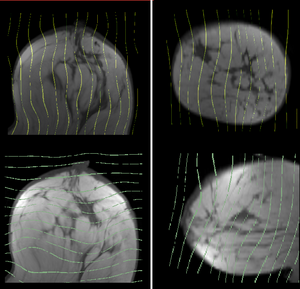 Deformation field for BSpline 9x9x4 max 10mm
Deformation field for BSpline 9x9x4 max 10mm
 BSpline 7x7x5 max 10mm
BSpline 7x7x5 max 10mm
Discussion: Registration Challenges
- soft tissue deformations during image acquisition cause large differences in appearance
- the large tumor recession represents a significant pre/post difference in image content that will influence unmasked intensity-driven registration, which becomes a problem for the non-rigid portion of registration, particularly at higher DOF, because the registration will try to "recreate" the tumor area from the postRx image in order to match the content.
- contrast enhancement and pathology and treatment changes cause additional differences in image content
- the surface coils used cause strong differences in intensity inhomogeneity.
- we have strongly anisotropic voxel sizes with much less through-plane resolution
- resolution and FOV change between the two scans
Discussion: Key Strategies
- because of the strong changes in shape and position, we break the problem down and register each breast separately.
- we perform a bias-field correction on both images before registration
- we use the Multires version of RegisterImages for an initial affine alignment
- the nonlinear portion is then addressed with a BSpline or DiffeomorphicDemons algorithm
- because accuracy is more important than speed here, we increase the sampling rate (i.e. the number of points sampled for the BSpline registration)